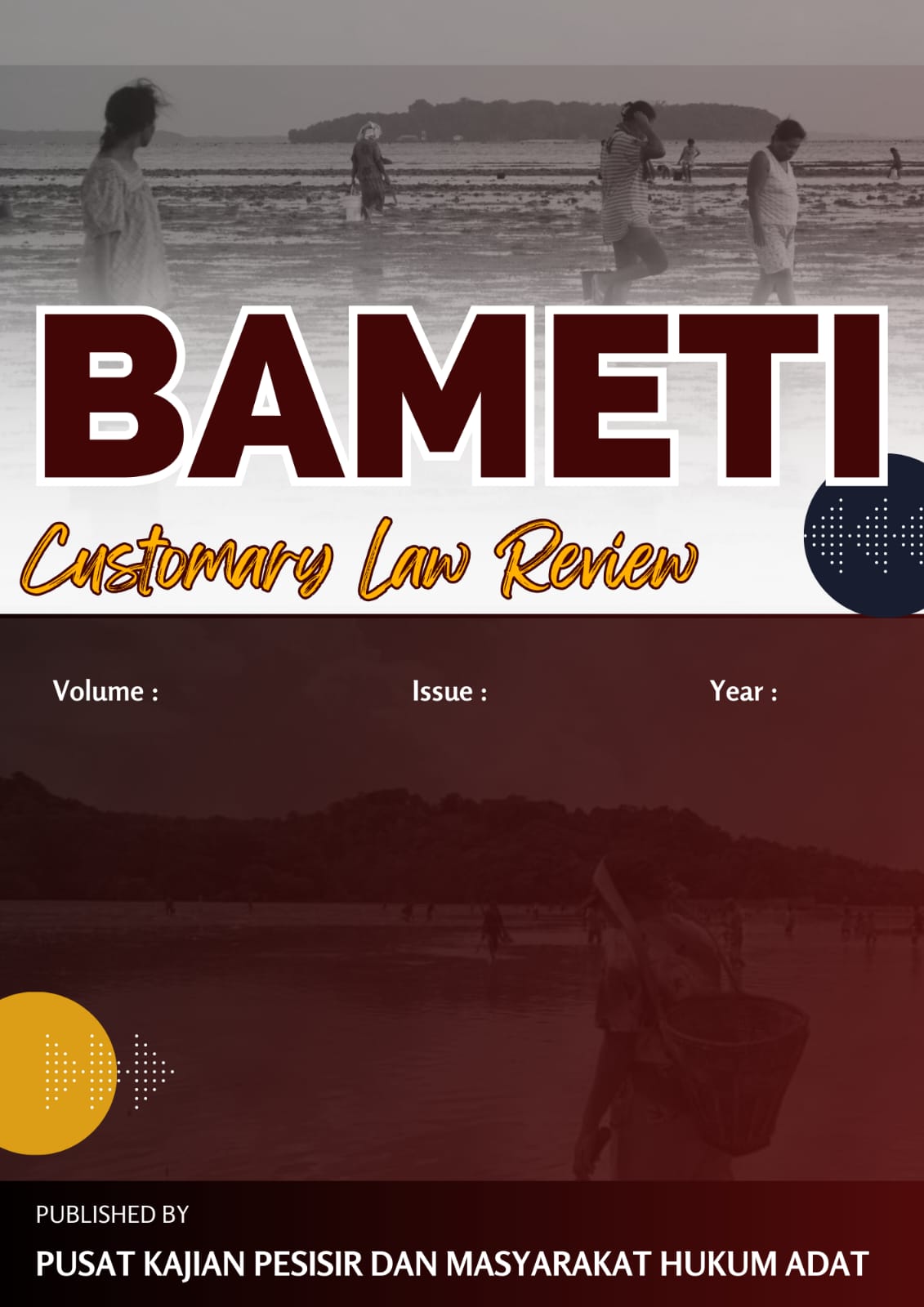Akibat Hukum Sipalaiang (Kawin Lari) Pada Suku Mandar Menurut Undang-Undang Perkawinan
Abstract
Sipalaiang in the Mandar tribe according to the law. Sipalaiang is a social phenomenon carried out by some Mandar tribal peoples. Sipalaiang is considered the last resort for couples who are in love who want to get married, but because there are several factors that make it impossible, including not getting the blessing of one or both parties' parents or family. Purpose of the Research to provide an explanation of the meaning and legal consequences arising from sipalaiang marriage in the Mandar Tribe. The research method used is normative with a statutory approach and a conceptual approach. The sources of legal materials used are primary and secondary legal sources. The technique of collecting legal materials used in this study was through library research and reviewing some of the literature. The legal materials used were primary and secondary which were analyzed qualitatively and then presented descriptively. Results of the Research, sipalaiang in the Mandar custom is a culture of eloping by the Mandar tribe which means between a man and a woman who love each other and agree to build a household but are hindered by several factors so that the marriage is carried out without the presence of the family and a marriage like this can be said to be a disgrace, both for the families of both parties and those who carry out the silariang. As for the factors that influence sipalaiang, namely, there is no blessing from parents, against arranged forced marriages, the habits of some parents in finding a mate for their children and differences in social strata. Therefore, the marriage has legal consequences that can be canceled in accordance with the provisions of the applicable laws and regulations which are explained in Article 6 paragraph 1 of the Marriage Law.
Downloads
References
Ahyuni Yunus. (2020). Hukum Perkawinan Dan Itsbat Nikah Antara Perlindunagan Dan Kepastian Hukum. Cet. I, Humanities Genius. Makassar.
Andi Dewi Pratiwi. Kedudukan Mahar Dalam Sistem Perkawinan Adat Mandar. Alauddin Law Development Journal, No. 1. 2023.
Farah Tri Apriliani dan Nunung Nurwati, Pengaruh Perkawinan Muda terhadap Ketahanan Keluarga. Prosiding Penelitian & Pengabdian Kepada Masyarakat, No. 1. 2020.
Megawati, (2019) Fenomena Nikah Silariang di Kota Parepare Tinjauan Sosiologis Hukum, Institut Agama Islam Negeri (IAIN) Parepare.
Retno Widiyastuti, Persamaan di Dalam Perbedaan Budaya, (Alprin, 2020).
Septi dan Agus Budi Santoso. Tinjauan Kritis Batas Usia Perkawinan di Indonesia dalam Perspektif Undang - Undang Nomor 16 Tahun 2019. Amnest Jurnal Hukum. No. 1, 2020.
Wantjik Saleh. (1976) Hukum Perkawinan Indonesia. Ghalia Indonesia. Jakarta. cet. IV.
Copyright (c) 2023 Wahdaniah Baharuddin

This work is licensed under a Creative Commons Attribution-NonCommercial 4.0 International License.
Authors who publish their manuscripts in this Journal agree to the following conditions:
- The copyright in each article belongs to the author, as well as the right to patent.
- Authors are able to enter into separate, additional contractual arrangements for the non-exclusive distribution of the journal's published version of the work (e.g., post it to an institutional repository or publish it in a book), with an acknowledgment of its initial publication in this journal.
- Authors are permitted and encouraged to post their work online (e.g., in institutional repositories or on their website) prior to and during the submission process, as it can lead to productive exchanges, as well as earlier and greater citation of published work.
- Authors have the right to self-archiving of the article (Author Self-Archiving Policy)













